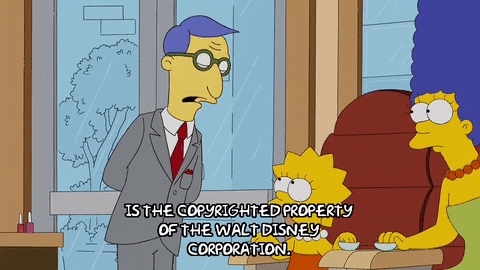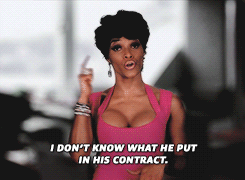Do You Own Your Article? Maybe Not
When new writers pour themselves into an article or blog post ownership usually doesn’t cross their mind. If you’re writing for a client, though, chances are that hard work will belong to your client, as soon as they pay, anyway. This means you won’t be able to use it anywhere else and the client can even say they wrote it. Confused? Let’s dig into copyrights and how they pertain to your work.
What is Copyright?
In a nutshell, a copyright prevents other people from using your work without your permission, and if they do, you can sue them. According to the US Copyright Office:
Copyright law protects a work from the time it is created in a fixed form. From the moment it is set in a print or electronic manuscript, a sound recording, a computer software program, or other such concrete medium, the copyright becomes the property of the author who created it. Only the author or those deriving rights from the author can rightfully claim copyright .
Works Made for Hire Hire Changes Things
If you’re in a work-for-hire contract with your client, though, all of that goes out the window. The client is considered the owner of whatever you wrote for them, as long as they pay for it.
How do you know if you’re in a work-for-hire agreement? Section 101 of the Copyright Act (title 17 of the U.S. Code) defines a “work made for hire” as:
A. a work prepared by an employee within the scope of his or her employment as:
or
B. a work specially ordered or commissioned for use as:
a contribution to a collective work
a part of a motion picture or other audiovisual work
a translation
a supplementary work
a compilation
an instructional text
a test
answer material for a test
an atlas
Also, the parties must agree in a written contract signed by both parties for it to be considered a work made for hire situation.
A Loophole?
The best way to know who owns your work is to take a look at your contract. Often, a contract will blatantly state that your writing is works made for hire. If you sign the agreement, the article, blog post or whatever, belongs to your client and they can do whatever they want with it, including saying they wrote it.
Other contracts are more lenient. Some will only take certain rights to the piece.
Here are some scenarios:
They want all rights, world-wide in digital and print, which means they own your work and you can’t do anything with it after your client accepts it and pays for it.
They only want digital rights, which means you can reprint your work in magazines, newspapers or books if you want.
They only want US rights (or rights for whatever country), which means you can publish the work in other countries.
They want print rights, which means you can publish the piece online, but you can’t publish it in magazines, newspapers or books.
Of course, if you write the contract, you get to determine how things play out. You can specifically note who gets what rights to the piece.
To learn more about contracts, take a look at this article.
Need help with your writing career? My No-Fluff Freelance Writing Starter Pack teaches you how I make $100 to $200 an hour at home as a freelance writer. It includes my two books, social media marketing guide for writers, invoice templates and more. Only $25.










